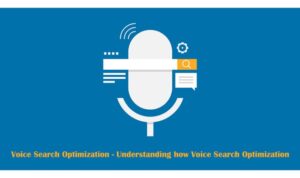E-commerce SEO Basics – Kicking off with E-commerce Basics, this opening paragraph is designed to captivate and engage the readers, setting the tone american high school hip style that unfolds with each word.
When it comes to online businesses, understanding the ins and outs of E-commerce is essential for standing out in the digital crowd. From optimizing product pages to leveraging social media, mastering these basics can take your online presence to the next level.
Introduction to E-commerce Basics
E-commerce , or search engine optimization, is crucial for online businesses to improve their visibility and ranking on search engine results pages. It involves optimizing various elements of an e-commerce website to attract more organic traffic and increase sales.
Unlike traditional , E-commerce focuses specifically on strategies that are tailored to online stores and e-commerce platforms. This includes optimizing product pages, category pages, and other elements unique to online retail.
Examples of Successful E-commerce Strategies, E-commerce SEO Basics
- Optimizing Product Titles and Descriptions: Creating -rich product titles and descriptions that are informative and engaging can improve search engine rankings and attract more potential customers.
- Implementing Schema Markup: Using schema markup to provide search engines with detailed product information can enhance visibility in search results and increase click-through rates.
- Improving Site Speed: Ensuring that your e-commerce website loads quickly and is mobile-friendly can improve user experience and help boost search engine rankings.
- Generating High-Quality Backlinks: Building a strong backlink profile from reputable websites can improve the authority of your e-commerce site and increase organic traffic.
On-Page Optimization for E-commerce Websites: E-commerce SEO Basics

When it comes to E-commerce , on-page optimization plays a critical role in improving the visibility of your online store and driving organic traffic. By focusing on key on-page elements, you can enhance your website’s search engine rankings and attract more potential customers.Optimizing product pages is especially important for E-commerce websites, as these pages directly impact the visibility of your products in search results.
By optimizing product pages effectively, you can increase the chances of your products being discovered by potential customers who are actively searching for them online.
Importance of Optimizing Product Pages
- Product Title: Ensure that the product title is descriptive, includes relevant s, and is compelling to entice users to click.
- Product Description: Write unique, detailed product descriptions that highlight the features, benefits, and unique selling points of the product.
- Meta Tags: Optimize meta tags such as meta title and meta description with relevant s to improve visibility in search engine results.
- Images: Use high-quality images with descriptive alt text to improve visibility in image search results.
Creating -Friendly Product Descriptions and Meta Tags
- Research: Conduct research to identify relevant s that potential customers are using to search for products similar to yours.
- Unique Content: Avoid duplicate content and ensure that each product description is unique, engaging, and provides valuable information to users.
- Optimize Meta Tags: Include target s naturally in meta titles and descriptions to improve click-through rates and visibility in search results.
- Structured Data: Implement structured data markup to provide search engines with additional information about your products, such as price, availability, and reviews.
Off-Page Optimization Strategies for E-commerce

Off-page optimization plays a crucial role in improving the visibility and ranking of E-commerce websites in search engine results. It involves activities done outside the website to enhance its online reputation and authority. This includes link building, social media engagement, influencer partnerships, and more.
Link Building Tactics for E-commerce Sites
Link building is a key off-page strategy for E-commerce websites as it helps in building domain authority and increasing organic traffic. Here are some tailored link building tactics for E-commerce sites:
- Guest Blogging: Collaborate with industry-related websites and blogs to publish guest posts with backlinks to your E-commerce site.
- Product Reviews: Reach out to influencers or bloggers in your niche to review your products and link back to your website.
- Broken Link Building: Find broken links on authoritative websites and offer your content as a replacement, gaining valuable backlinks.
- Resource Link Building: Create high-quality resources or guides related to your products and services to attract backlinks from other websites.
Leveraging Social Media for E-commerce
Social media has become a powerful tool for E-commerce businesses to drive traffic, engage with customers, and improve search engine rankings. Here are some tips on leveraging social media for E-commerce :
- Create Shareable Content: Develop engaging and shareable content that encourages users to link back to your E-commerce site.
- Engage with Influencers: Collaborate with social media influencers to promote your products and reach a wider audience.
- Optimize Social Profiles: Ensure your social media profiles are optimized with relevant s and links to your E-commerce site.
- Encourage User-generated Content: Encourage customers to share their experiences with your products on social media, creating valuable backlinks and social proof.
Technical for E-commerce Platforms
When it comes to optimizing E-commerce websites, technical plays a crucial role in ensuring that the site is easily crawled and indexed by search engines. It focuses on the backend aspects of a website to improve its visibility and ranking in search engine results pages (SERPs).
Importance of Mobile Optimization for E-commerce Sites
Mobile optimization is essential for E-commerce sites as a large percentage of online shoppers use mobile devices to browse and make purchases. Ensuring that your website is mobile-friendly not only improves user experience but also helps in boosting your site’s rankings. Google also prioritizes mobile-friendly websites in its search results, making it a critical aspect of technical .
- Responsive Design: Design your E-commerce site to be responsive and adapt to different screen sizes for optimal viewing on mobile devices.
- Mobile Page Speed: Optimize your site’s loading speed on mobile devices to provide a seamless browsing experience for users.
- Mobile-Friendly Content: Ensure that your content is easily readable and accessible on mobile devices without compromising on quality.
Mobile optimization is not just about making your site look good on mobile devices; it’s about providing a user-friendly experience that encourages visitors to stay and explore your E-commerce offerings.
Enhancing Site Speed and Performance for Better
Site speed and performance are critical factors that impact both user experience and rankings. A fast-loading website not only improves user satisfaction but also signals to search engines that your site is reliable and trustworthy.
- Optimize Images: Compress and resize images to reduce their file size without compromising on quality.
- Minimize HTTP Requests: Reduce the number of elements on your webpage that require separate HTTP requests to load.
- Enable Browser Caching: Utilize browser caching to store static resources locally, reducing load times for returning visitors.
By focusing on technical aspects such as mobile optimization and site speed, E-commerce websites can enhance their online visibility, attract more organic traffic, and ultimately drive conversions and sales.





